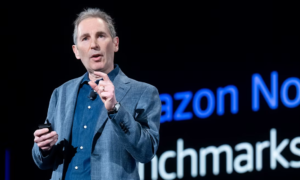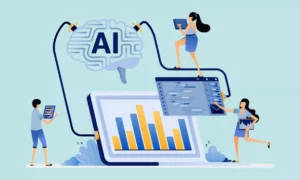The tech giant that once defined innovation is now scrambling to catch up in artificial intelligence. With $640 billion wiped from its market value this year, Apple faces mounting pressure to abandon its go-it-alone approach. Could a major acquisition finally wake the sleeping giant?
What Just Happened
Apple’s stock has dropped 16% this year while competitors like Meta surge ahead with massive AI investments. The company that revolutionized smartphones now finds itself playing catch-up in the most important tech race of our time.
New reporting shows the depth of investor frustration with Apple’s slow AI rollout. The delays aren’t just disappointing longtime fans. They’re reshaping how Wall Street views the company’s future.
Citigroup analyst Atif Malik captures the mood: “Historically Apple does not do big mergers and acquisitions,” but argues that “investors would turn more positive if Apple could acquire or invest a meaningful stake in an established AI provider.”
That resistance to big deals has defined Apple for decades. The company’s largest acquisition remains the $3 billion Beats purchase from 2014. That’s pocket change by today’s standards.
But cracks are appearing in Apple’s traditional fortress mentality. Recent reports suggest executives have discussed a potential offer for AI startup Perplexity AI, valued at $14 billion after its latest funding round.
Why This Could Change Everything
Dan Ives from Wedbush calls a Perplexity acquisition a “no brainer.” Even at $30 billion, he argues, it would be “a drop in the bucket relative to the monetization opportunity Apple can achieve on AI.”
The numbers back up that confidence. Apple sits on $133 billion in cash and marketable securities. That’s nearly double what Meta has in reserve.
Since unveiling its AI vision over a year ago, Apple’s feature rollouts have consistently underwhelmed. The company’s recent Worldwide Developers Conference left many observers wanting more substance behind the flashy presentations.
Even more telling: Apple has reportedly considered licensing AI technology from external companies rather than relying on its own models for the next-generation Siri. That’s a big departure for a company that prides itself on controlling every aspect of the user experience.
The Talent War Gets Serious
Meta’s aggressive hiring spree highlights just how far behind Apple has fallen. Mark Zuckerberg recently poached an engineer from Apple’s AI models team with a compensation package worth hundreds of millions over several years.
The kicker? Apple didn’t even try to match the offer, according to reporting. That’s the kind of passive response that has investors questioning whether current leadership grasps the urgency of the moment.
Kevin Cook from Zacks Investment Research sees the solution differently: “A refocus on AI talent is what’s needed. Apple certainly has challenges, but this isn’t like Google, which could more easily have been usurped by competitors if it fell behind.”
Leadership Questions Surface
Recent executive changes add another layer of uncertainty. Chief Operating Officer Jeff Williams is retiring after a decade, while longtime CFO Luca Maestri stepped down last year.
Weekend reports suggest CEO Tim Cook will remain in place, though the company is preparing for broader management changes. LightShed Partners analysts believe a shake-up is “exactly what Apple needs right now,” warning that “missing on AI could fundamentally alter the company’s long-term trajectory and ability to grow at all.”
Paul Meeks from Water Tower Research puts it bluntly: Apple needs to do “something bold.” A major acquisition wouldn’t just boost AI capabilities. It would signal a fundamental culture shift toward urgency and adaptation.
The Road Ahead
Apple’s AI predicament isn’t just about playing catch-up. It’s about preserving relevance in a landscape where generative AI will define the next decade of consumer technology. The company’s legendary product development cycle served it well in hardware, but AI moves at internet speed.
The question isn’t whether Apple can afford to make big moves. With its massive cash reserves and loyal customer base, the company has everything it needs to compete. The real question is whether leadership will abandon the incremental approach that’s served them well in the past but may prove fatal in AI’s winner-take-all environment.
Apple has built its reputation on doing things differently. Now investors are asking: Will different be enough when the stakes have never been higher?



























